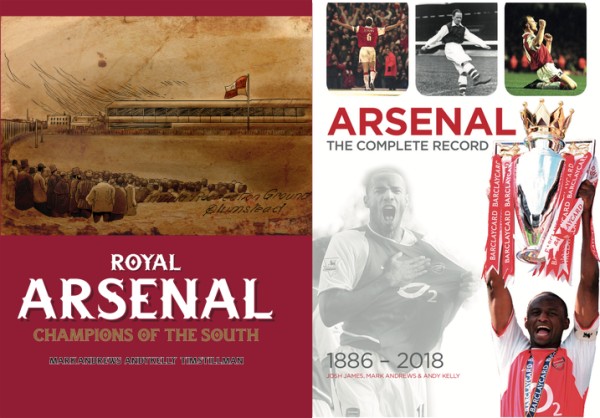Alex James’ Cigarette Case
Thierry Henry, Dennis Bergkamp and Alex James: these three names always crop up when discussing the best attacking player in Arsenal’s history, but the outstanding player from the 1930s is our subject here.
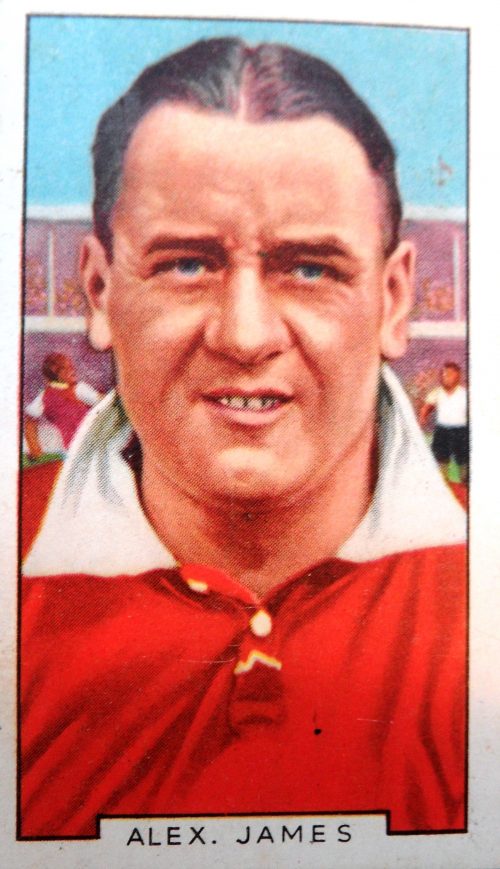
Alex James was a mercurial talent who joined Arsenal, just following Cliff Bastin, in early June 1929 for £8,750 after negotiations with Herbert Chapman in Glasgow which included an additional job at Selfridges to get around the footballer’s maximum wage. He made his debut in the opening game of the 1929-30 season on 31 August 1929 versus Leeds United.
James was a key figure in all the 1930s trophy winning Arsenal sides except the final league title win as, by that time, he had retired from playing. Consequently he won four Championship medals in 1930-31, 1932-33, 1933-34 & 1934-35, and two FA Cup winners’ medals in 1930 and 1936.
He was Arsenal Captain from 1932 to 1937, and in all played 261 matches scoring 27 goals for the Gunners. George Allison who took over as manager from Chapman said of James:
“He was, without doubt, the greatest natural born player I have ever seen”.
After he retired he was invited to Poland on more than one occasion and in the summer of 1939 took the role up to coach the elite players and coaches of their game in preparation for the scheduled 1940 Olympics. He had been earmarked to take their team to those games and it was seen as the beginning of a fruitful coaching relationship.
Arriving on 6 June 1939 he was greeted at Warsaw airport by members of the Polish FA who had arranged for loudspeakers to blare out “the Lambeth Walk” in his honour. He was boarded at an apartment in the Academy of Physical training just outside Warsaw and began a schedule of three two week training sessions. He also lectured in the evening and had a column in the ‘Sporting Press of Poland’ paper where he could expound his views and were full of copious photos of him.
While there he played in a couple of games and, owing to his lack of match fitness, suffered afterwards saying he felt as though he had “been run through a mangle.” He was very impressed with his charges’ ball skills and ability to juggle, but not so much with their tactical nous, strength or stamina – so he worked on these elements.
By all accounts his stay was enjoyed by him, and also by the Polish footballers. He was presented with a silver cigarette box as a memento of his time there by the Polish football club: Polonia Warsaw.
He kept it and it is now safely stored in the Arsenal museum.
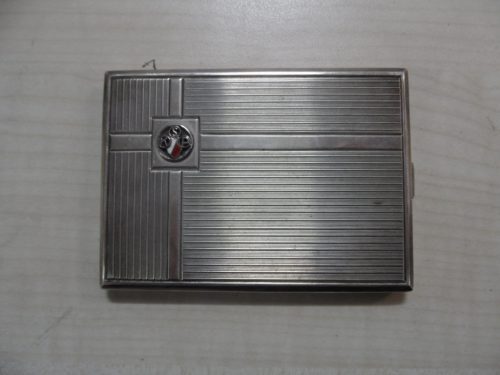
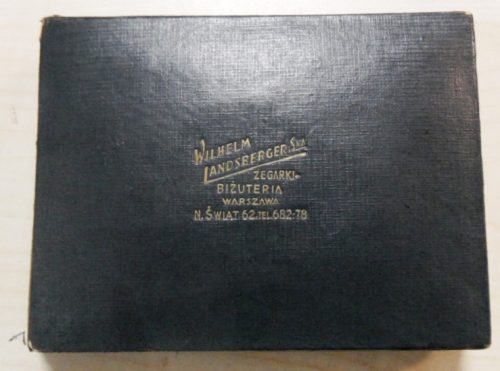
In ‘Topical Times’ just after he returned to England Alex wrote:
“I was sorry to leave for I made some good friends, and I felt I had been reasonably successful in doing my bit for Polish football.”
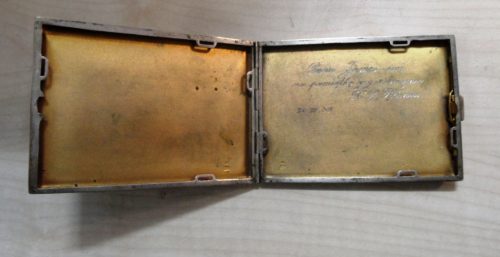
It was inscribed to help Alex remember his Polish friends and dated 28 July 1939.
He left the country on 11 August 1939, having to leave earlier than anticipated as the geo-political situation deteriorated. The Polish FA wanted him to return on a regular basis but events were to stop this from ever happening.
Two weeks after he left the country Poland beat Hungary 4-2 in, in a friendly showing strength and stamina and bit of nous in coming back from 2-1 down. A few days later Germany invaded Poland leading to the Second World War.
James was called up into the Royal Artillery in an anti-aircraft unit in 1942, and later that year was hospitalised at Windsor after suffering from a fractured rib at a gun site in South England. He spent the rest of the war as Gunner James in the RA Maritime Division. Such was his fame and popularity in the country that his name was the password in a naval exercise in 1943.
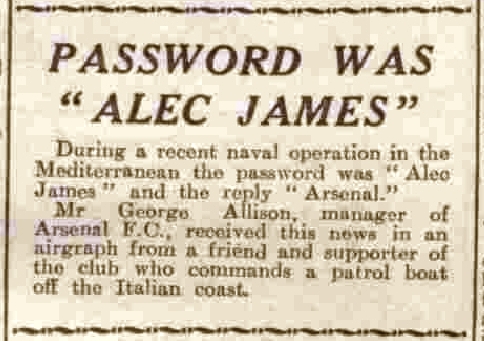
After the war he was brought back into the Arsenal regime, as a coach to the juniors in 1949, by manager Tom Whittaker. Whittaker, the Gunner’s trainer and physio during the 1930s, had witnessed Alex James’ genius on the pitch as Arsenal dominated the English game. He was in no doubt as to James’ role in this ascendancy:
“Alex James was a great footballer and a great club man. He did as much as anybody to make Arsenal what they have become”.
Background to the article
This season we’ve been asked to write a regular page in the official Arsenal magazine based on a historical object related to the Club. Magazine and Programme editor Andy Exley has kindly given us permission to reproduce the match reports on our blog. We will also be including additional material that didn’t make the final edit of the magzine.
—————–
For more information on this Arsenal Great, we would suggest the book: Alex James Life of a Football Legend by John Harding.
—————–
Don’t forget to subscribe to the blog (top right). You know it makes sense.
Or have a look at our other site: The Arsenal Collection for more Arsenal memorabilia.
Copies of our books Royal Arsenal – Champions of the South and Arsenal: The Complete Record 1886-2018 are still available from the publishers.
